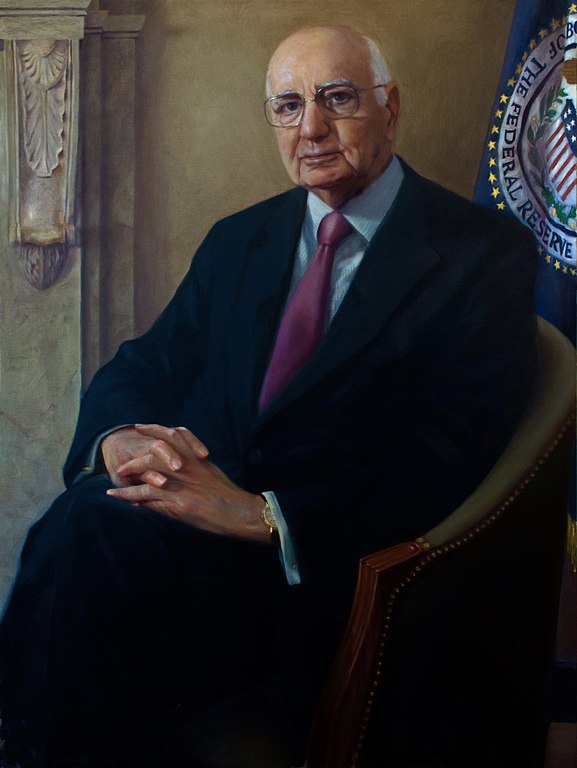Last week, Paul Volcker, one of our greatest Chairmen of the Federal Reserve, passed away. Volcker’s most notable accomplishment was his successful struggle to subdue inflation in the late 1970’s and early 1980’s.
Volcker devoted almost his entire career to public life. For sixty years, he advised our presidents. In brief, he will have an everlasting legacy. Inflation has remained under control ever since his Fed tenure.
In order to break the back of inflation, Volcker was willing to raise overnight Federal Fund Rates to over 20%. Volcker believed that America must endure pain to knock out inflation. In his last major post, as Chairman of President Barack Obama’s Economic Recovery Board, Volcker persuaded lawmakers to impose new restrictions on big banks–a measure known as the “Volcker Rule.” The rule was designed to prevent banks that receive federal and taxpayer backing in the form of deposit insurance and other support from engaging in risky trading activities. The Volcker Rule generally prohibits banks from conducting certain investment activities with their own accounts and limits their dealings with hedge funds and private equity funds.
Before Volcker, the Fed solely focused on controlling interest rates by focusing on the price of money. Instead, under Volcker, the central bank controlled the supply of money, and the markets would set the price. The University of Chicago Economics School advocated this policy.
In relying on the Chicago School, Volcker rejected reliance solely on Keynesian economics that had argued governments could manage economic conditions, including interest rates. Under President Nixon, America for a brief time even imposed price controls.
Relentlessly, Volcker spoke “truth to power.” He confronted critics of his high interest policies. Volcker felt himself to be a medieval Knight who wanted to slay the “inflationary dragon. He oversaw the reclamation of deposits of Swiss banks that had failed to return to the families of Holocaust victims their rightful money.
I do not know if this is apocryphal. The New York Times reported that the press was not certain whether to cover Pope John Paul II who was visiting Washington in 1979 or Volcker. Mr. Volcker’s spokesman persuaded the network to abandon the pontiff. “Send your crew here. Long after the pope is gone, you will remember this one.”
Volcker was notoriously frugal. He smoked drugstore cigars and wore ill-fitting suits. As chairman of the Fed, he lived in an apartment with George Washington University students and took his laundry to his daughter’s home in Virginia.
In 1979, advisors to President Carter warned him not to appoint Volcker because he would drive up interest rates to record highs to curb inflation. In a meeting with Carter and his predecessor William Miller, Volcker said: “if you appoint me, I favor a tighter policy than that fellow.”
Volcker rejected a gradual approach to raising interest rates. Instead he advocated a dramatic gesture. He was willing to confront intense political pressure to be moderate. He felt that inflation had become a self-fulfilling prophecy. Because people expected prices to rise, they borrowed and spent more. They demanded large pay increases. As a result prices rose.
When Volcker became Chairman of the Fed, the inflation rate was above14%. By comparison our current inflation rate is below 2%.
I hope that the Federal Reserve can remain above partisan politics. In Volcker’s upcoming autobiography, he condemned President Trump’s efforts to pressure the Federal Reserve to lower interest rates to stir economic growth During Volcker’s tenure at the Fed, leaders of both political parties largely deferred to the central banks. This allowed its officials to institute monetary policy with little political interference. Ben Bernanke, chairman from 2006-2014, said about Volcker: “ He personified the idea of doing something politically unpopular but economically necessary.”
Originally published in the Sarasota Herald-Tribune




